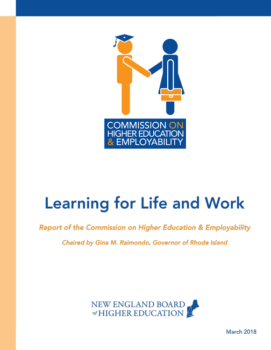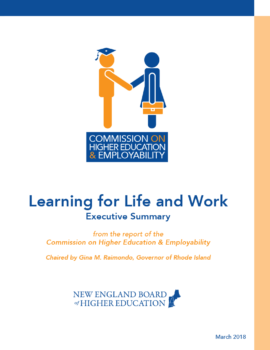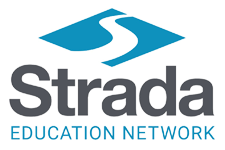The Commission on Higher Education & Employability is a key initiative of the New England Board of Higher Education (NEBHE) and chaired by Governor Gina Raimondo of Rhode Island. The Commission met on six occasions between April 2017 and March 2018.
The Commission’s work addresses two key truths. While New England is world-renowned for its high-quality colleges and universities, the region’s employers remain concerned about a lack of qualified, skilled workers, particularly in technology-intensive and growth-oriented industries. The challenges of low population growth, persistent equity gaps in postsecondary attainment and increasing global competitiveness require policymakers, business leaders and higher education to collaborate to maximize the region’s human capital potential, ensure workforce productivity and improve residents’ well-being.
While the Commission’s origins are regional, it seeks to catalyze a national initiative and assume a broader leadership role in the United States.
Purpose
Gov. Raimondo charged the Employability Commission to develop an action agenda, policy recommendations, strategies and next steps to align institutions, policymakers and industry to increase the life and career readiness of college and university graduates—and facilitate their successful transitions to work and sustained contributions to the well-being and competitiveness of the region and nation. The Commission delivered a final report, Learning for Life and Work, with 19 recommendations for higher education leaders, policymakers and employers in March 2018.
Focus
Accordingly, key areas for investigation and deliberation by the Employability Commission include:
- Utilizing employability to drive increased postsecondary retention, progress and attainment, with a focus on equity and inclusion of underrepresented populations
- Increasing postsecondary opportunities for work-integrated, experiential and cooperative learning (for example, internships, field placements), including via policy incentives and student-aid programs
- Effective use of labor market data and other information to inform programs, policy and practice
- Re-envisioning advising and career services offered by colleges to better align supply and demand and implement best practices and “disruptive” approaches
- In-demand digital skill “bundles” that might include fundamental IT and coding skills, knowledge of the digital economy, data analytics, cloud computing, technology security and entrepreneurship or other essential 21st century skills
- Policies related to new credentials, including the recognition and aggregation of postsecondary and non-postsecondary training and the work experiences of working adults and veterans.





